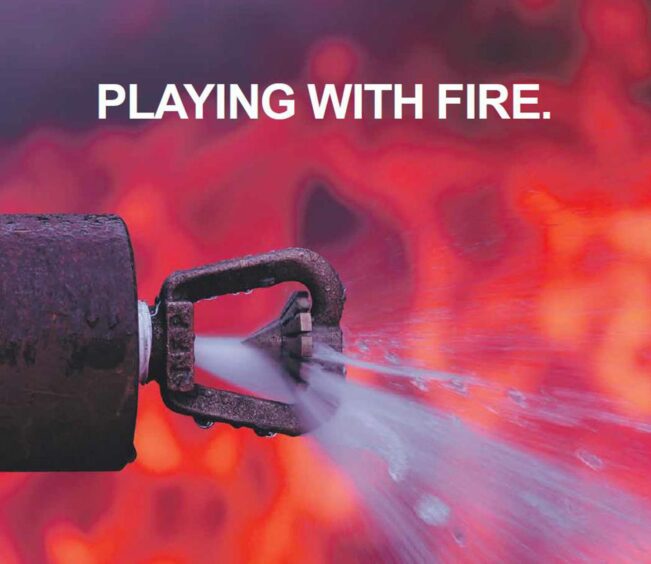
“This is what’s protecting our energy infrastructure,” says Ian Garden as he unveils a series of photos showing blocked and corroded nozzles from offshore deluge systems – designed to fight fires in an emergency.
The images speak for themselves and come with concerning testimony not only from Garden, of RigDeluge, but Joe Meanen, one of the 61 survivors of the Piper Alpha disaster.
The pictures don’t come from the 1980s, either – Garden says they’re all recent from the USA, Brazil, Malaysia, Australia, NZ, UK, EU and Ghana.
“The images you see there are real, coming from planned fires,” says Garden.
“That is the state of some of our systems. This isn’t 34 years ago, some of those pictures are from today. That’s the reality of it.
“Changing the delivery lines, you can see that’s not all corrosion, there’s calcium build up, there’s silt, there’s sand. There are some nozzles which aren’t the right ones for that system.
“This is what’s protecting our energy infrastructure today.”
Garden is speaking at the Safety in Mind event held at Survivex in Aberdeen, organised by RigDeluge, alongside Meanen and Steve Harris of Vysus.
The speakers paint a concerning safety picture, which is allowed to happen because, as Garden puts it, a culture of “fail and fix” compliance test procedures has been permitted in the sector.
You can “fail and fix” a deluge system – which might fail its first controlled test due to blockages, but it is then cleaned out and made “temporarily” compliant second time round.
But you want these systems working first time, every time, if they’re needed in a live environment – which Garden says his company has provided.
‘They’ve never experienced it, never feared it’
Traction is being picked up in areas like Australia thanks to Garden’s push in 2019 at AOG and a talk at the WA Energy Club.
Having recently won a contract to supply over 5,000 units to help protect a billion-dollar FPSO, the award-winning tech has taken the leap from being validated in brownfield assets to now being designed into greenfield, preventing failings of the past being repeated.
It has also been pre-qualified for ADNOC in Abu Dhabi and in Malaysia for Petronas.
But, in the UK where the technology was first independently validated the fail-fix remains an issue which Garden describes as “lunacy” and if worded correctly would be temporarily fixed to pass a compliance test.
“If your system fails a yearly test, the solution is to test it twice a year. If it fails twice, you test it four times a year.
“You’re not solving anything; you’re actually proving that the system doesn’t work.”
Part of the problem, the room hears, is that some of the decision makers lack offshore experience, particularly in fire safety, having “never felt the heat, never smelt it, never experienced it, never feared it”.
That’s what the Safety in Mind event is about – giving people that insight as well as the chance, in a controlled environment, to experience going into a burning accommodation module where deluge systems are not working.
The “moral duty” is not on the regulators, the room hears, but the duty holder of these assets to ensure standards are up to scratch.
One of the 61
Someone beyond qualified to give executives insight into that is Piper Alpha survivor, Joe Meanen.
He’s clear in his condemnation of the duty holder at the time – Occidental Petroleum – which the Cullen Inquiry found ignored warnings on safety which ultimately led to what remains the worst disaster to ever occur offshore, with 167 lives lost.
Garden paints a picture with a point to Joe: “It’s really hard to represent a 300,000 barrels of oil fire… The most I’ve come up with is 20,000 under controlled circumstances”.
What does a fire, burning 300,000 barrels of oil tearing through a production platform, look like?
The night of Piper
Archive footage from 1988 shown to the audience gives some insight – beyond words, but a horrifying plume of smoke and flame which is still burned into the collective consciousness of the industry 34 years later.
Meanen uses the exercise to share powerful memories of that night, from going to the platform’s cinema to watch “Caddyshack” with his mates after a 15-hour shift, to the moments before the first explosion.
“It was a good atmosphere, good laughs but about 40 minutes into the movie you could hear what I would describe as a jet engine really revving up, but quite extreme.
“You could feel the power coming through the seats you were sitting in. Then it subsided and then a silence came over the cinema. There were a few inquisitive looks over to each other, but the atmosphere got back to what it was before.
“A few minutes later it came again but even more intensive then – bang – huge explosion in Module C, which actually knocked some people off their seats, part of the cinema roof fell in, lighting fell in, and there was an initial panic.”
Meanen is describing the initial blast which in turn fractured crude oil pipes in Module B and destroyed the control room, so no alarms or tannoys went off.
He eventually found his way to the galley area at the top of the accommodation block where around 100 men were lying flat against walls or the floor – the same galley would later that year be recovered from the sea, tragically, with 87 bodies inside.
Decision time
There was “silence” there. This section was designed as a “positive air flow area” for 30-40 minutes, with the hope it could be a safe haven while helicopter evacuation could take place.
“When you did your survival courses you were always told your first method of evacuation would be by helicopter,” Joe reminds the audience, which is what the workers inside were hoping for.
However, with emergency lighting going out and no water in the taps – it dawned on him there would be nothing to fight the fire.
All the while “you could hear other small explosions happening, you could hear glass breaking, you could actually hear groaning metal” as the integrity of the platform became compromised.
Joe was part of a group of about 20 who decided collectively that, if they were to stay there, they wouldn’t be able to do anything for themselves.
So they made their way to the helideck where a water cannon – the only one trained on Piper to that point – from the Tharos support ship caught their clothes and hair.
Speaking to surgeons about his burns later, Joe believes that cooling water prevented him from worse injuries, though he did have a risk of steam burns, which he avoided.
Jump
After some “heart to heart” words with friends on that helideck, the second explosion at around 10.20pm from the ruptured Tartan gas line shook the platform and sealed its fate.
Shortly afterwards, Joe decided to jump 175 feet off the helideck, making his escape thanks to a lifejacket he threw in first and eventually being picked up by a fast rescue craft.
“I knew exactly what I was doing, but it was as if it was an outer-body experience, a higher being, or a will to survive.
“I tried to propel myself off as far as I could – it was only at that point I came back to myself and the first thought was ‘what have I done?’
“From that point, not another thought came into my head”.
Only five of those who jumped survived, Joe later tells the audience, with post-mortems showing head, leg, and pelvis injuries from falling that distance.
He reflects on the “miniscule decisions that you make” which dictate whether you survive or not.
“I don’t know how I survived; I was just so fortunate.”
Of the plethora of issues leading up to Piper Alpha, deluge systems were one. The Cullen Inquiry found later that Joe, himself a scaffolder, had, found empty bags which were meant to hold water for those systems days before the disaster.
“That’s one of my biggest regrets, the lack of knowledge of what was happening there.
“We just did our jobs, got on with it, put scaffolding up, took it down, spoke to the other guys, and never really got involved enough.”
Even if Joe had that knowledge and training on fire systems, it should also be noted that speaking up on safety was not encouraged then as it is today, more than three decades on.
Safety in Mind
Lloyds of London had condemned the system two years prior to the disaster – Occidental got an exemption because the company and the government were “desperate” to get oil out the ground at that time.
Asked whether the industry has “moved on” or if complacency remains, Joe says he’s seen an “awareness now” within firms he’s spoken to, but “on the other hand there is that slipping back into comfort zone and ‘everything will be fine’”.
Bob Taylor, a retired maintenance manager says: “I’ve read the books on Piper Alpha, I’ve read the Cullen Report, but to hear a human story like that is so powerful – it touches on so many human aspects.
“It’s really hard to take in and I will reflect on some of the things Joe has said.
“Joe took that decision to jump off, probably in the knowledge he might not survive this, but he was gone because it was the only thing that gave him a chance.
“Very few of us will ever be in that situation.”
Operators should take heed
Marissa Stephen an engineering manager for Apollo, says it is “really thought-provoking”.
“Hearing Joe speak was mind-boggling and getting that person in the room to share his story is so powerful – I think operators should be embracing that.”
Emanuela, another audience member, from Repsol Sinopec, says hearing Joe enforced the importance of situational awareness for training providers and thinking “outside the box” asking “how do I get myself out of this situation?”
She says: “I really want to commend Joe for being brave enough to tell his story, I think he needs to share it with people in management, especially, who make the decisions.
Kevin Westwood, ex Global Head of Fire Hazard Management at bp, said: “RigDeluge, exemplars of engineered fire safety solutions, preventing ‘failure on demand’ of life safety systems, delivering thermal attenuation and fire mitigation. Award-winning technologies – a safer world, one asset at a time.”
Let’s not lose the moral argument
Summarising the session, Steve Harris of Vysus says: “This type of session is incredibly impactful, it’s the perfect context-setter.
“With those decision makers further up the tree, this is the type of story they really need to hear.”
He then moves on to the situation regarding HSE, as it applies to deluge systems and other safety equipment offshore.
“The ALARP (as low as reasonably practicable) decision-making framework in the UK is great, and each one of our motivations runs on three things: economic, legal, and moral.
“The economic argument is what we’ll hear most commonly from our C-suite.
“The legal argument is fairly strong, but we’re sitting in a goal-setting framework where we comply with acts which are enacted by regulations and come down to ACOPS (approved codes of practices) and guidance. And we don’t have to stick to that, as long as we can demonstrate that what we’re doing lowers the risk down to something relatively similar.
“What we must go forward with in our ALARP calculations is the moral argument as well, and that’s so often left out.
“I think Joe has done a brilliant job of reminding us of that.”
Safety in Mind was hosted by RigDeluge with the assistance of Survivex, Aberdeen on October 9.
Recommended for you

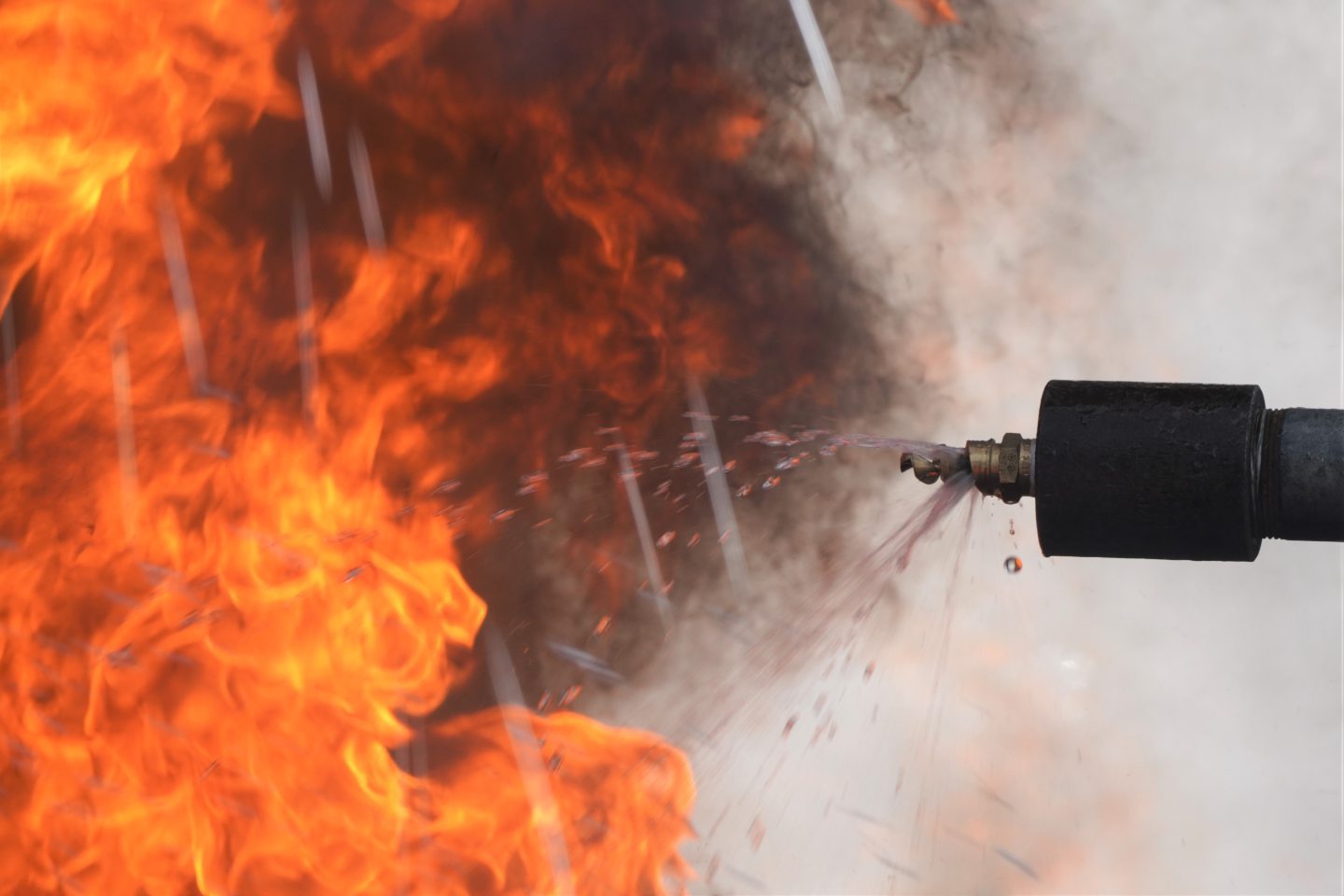 © Supplied by RigDeluge
© Supplied by RigDeluge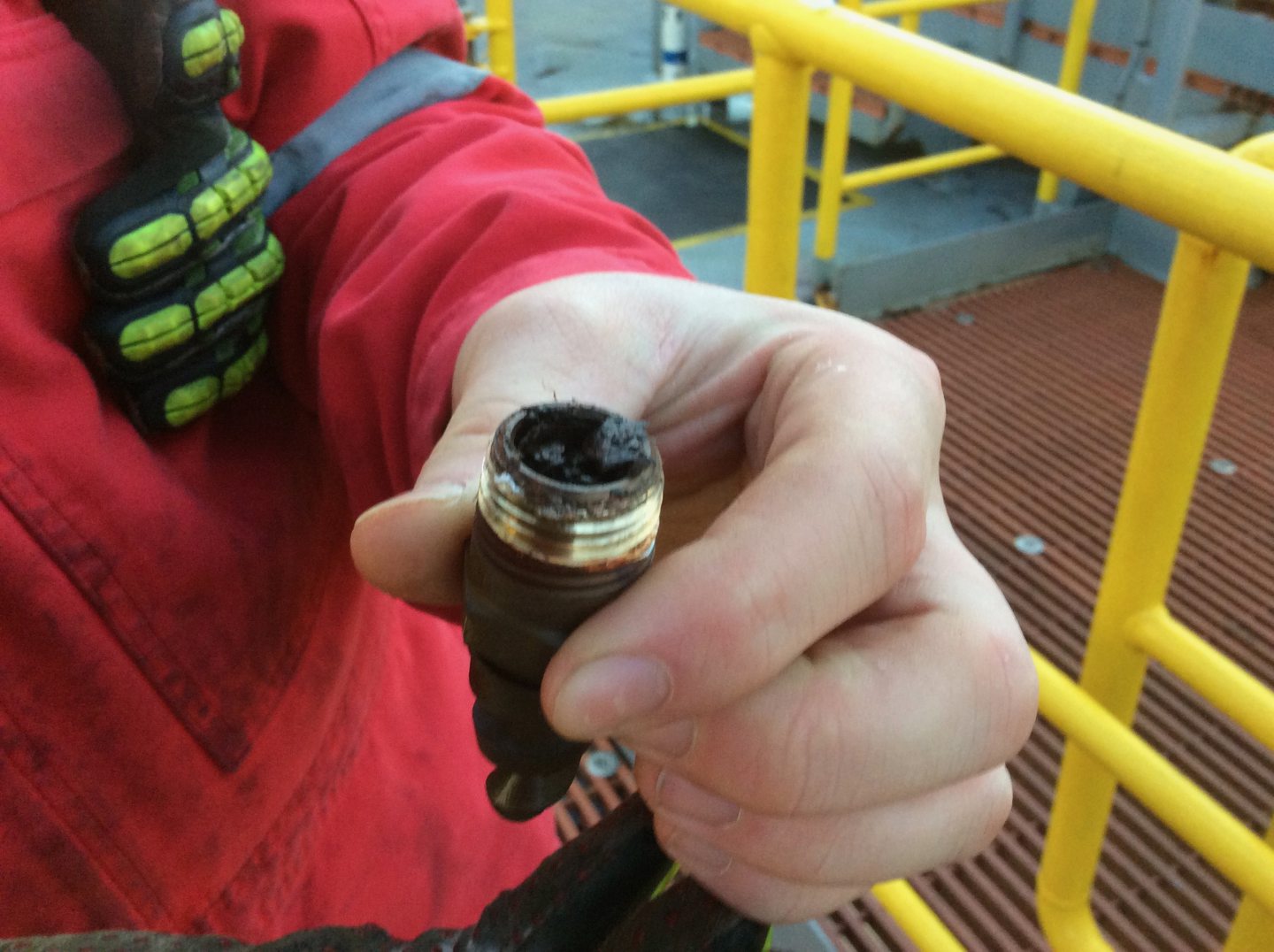 © Supplied by RigDeluge
© Supplied by RigDeluge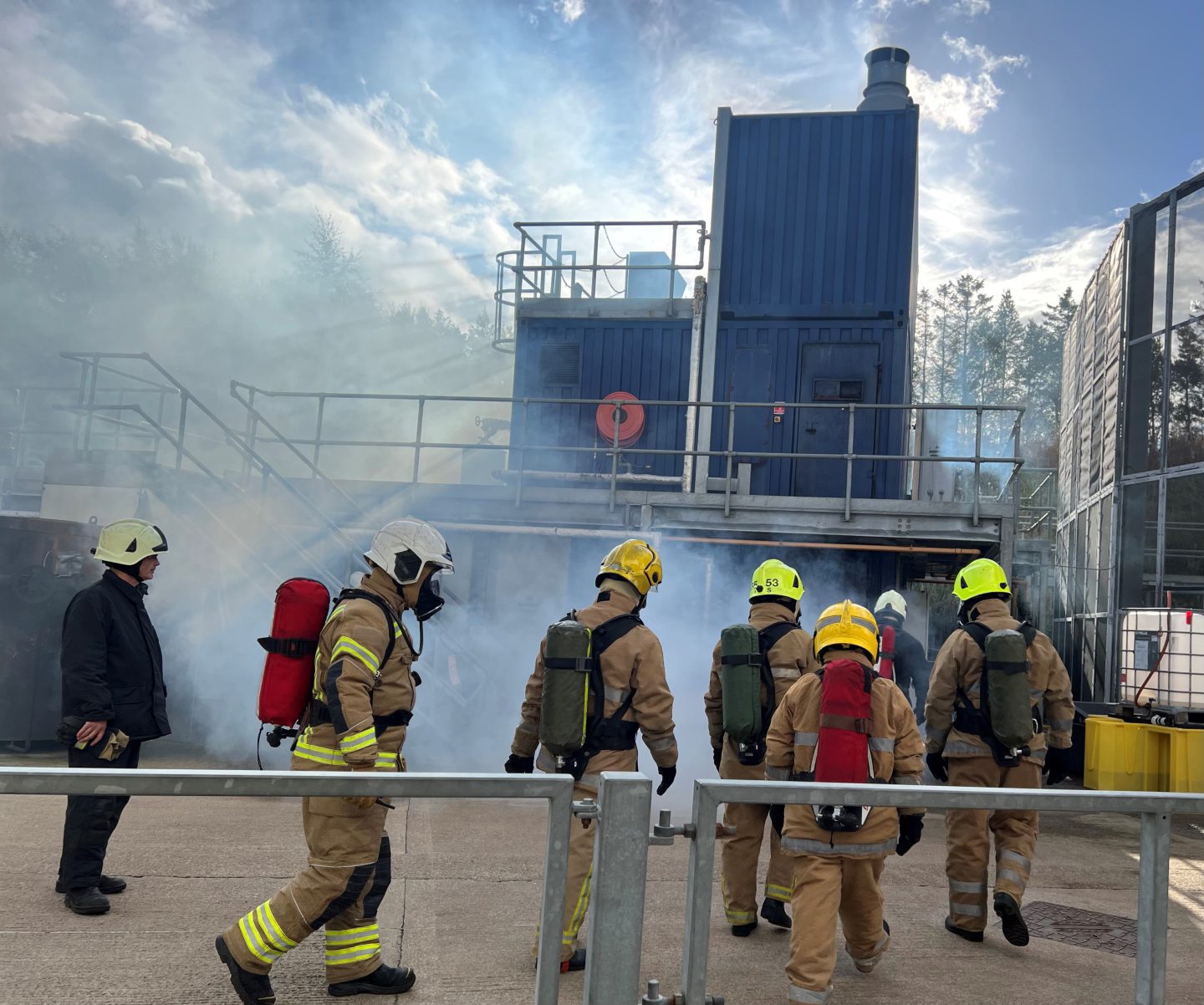 © Supplied by RigDeluge
© Supplied by RigDeluge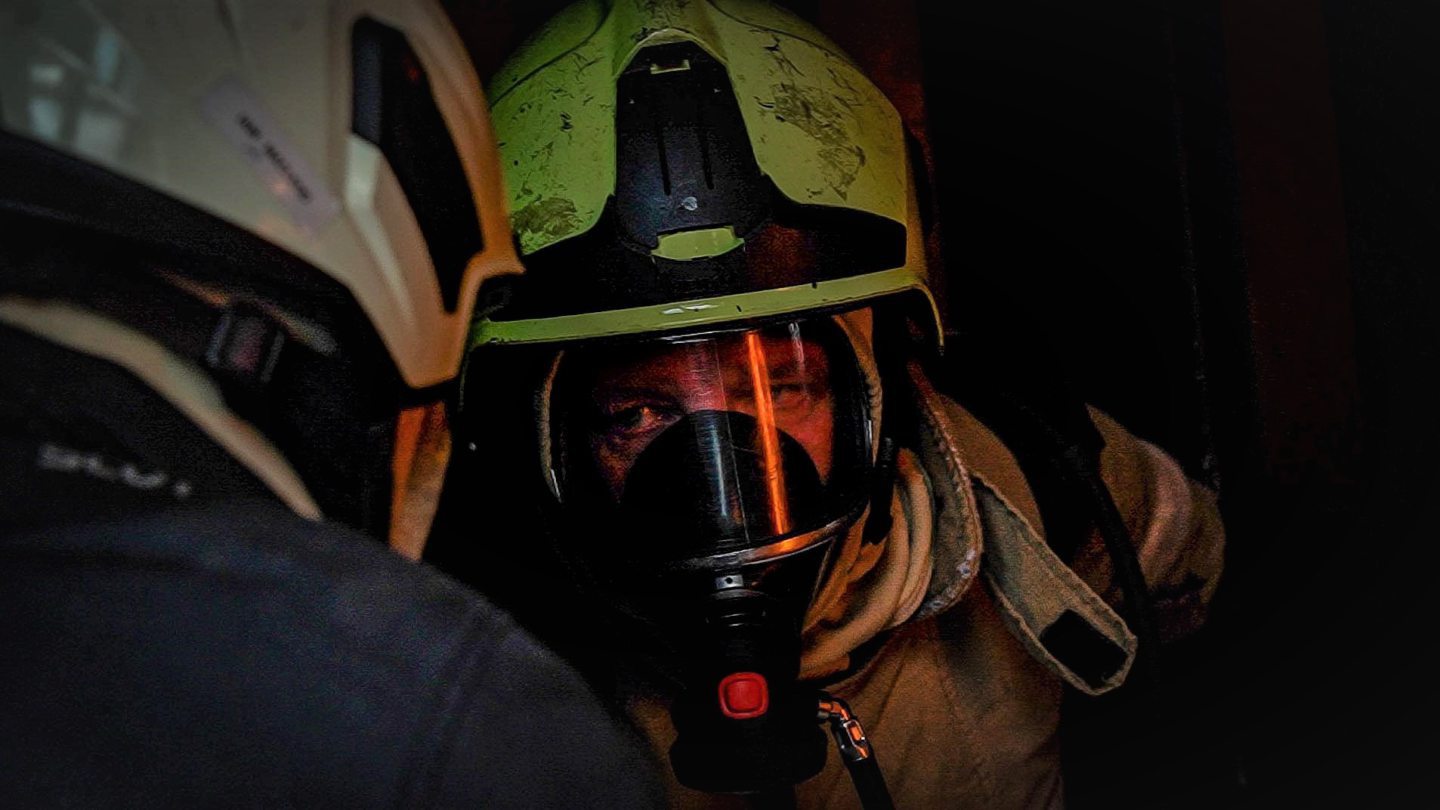 © Supplied by RigDeluge
© Supplied by RigDeluge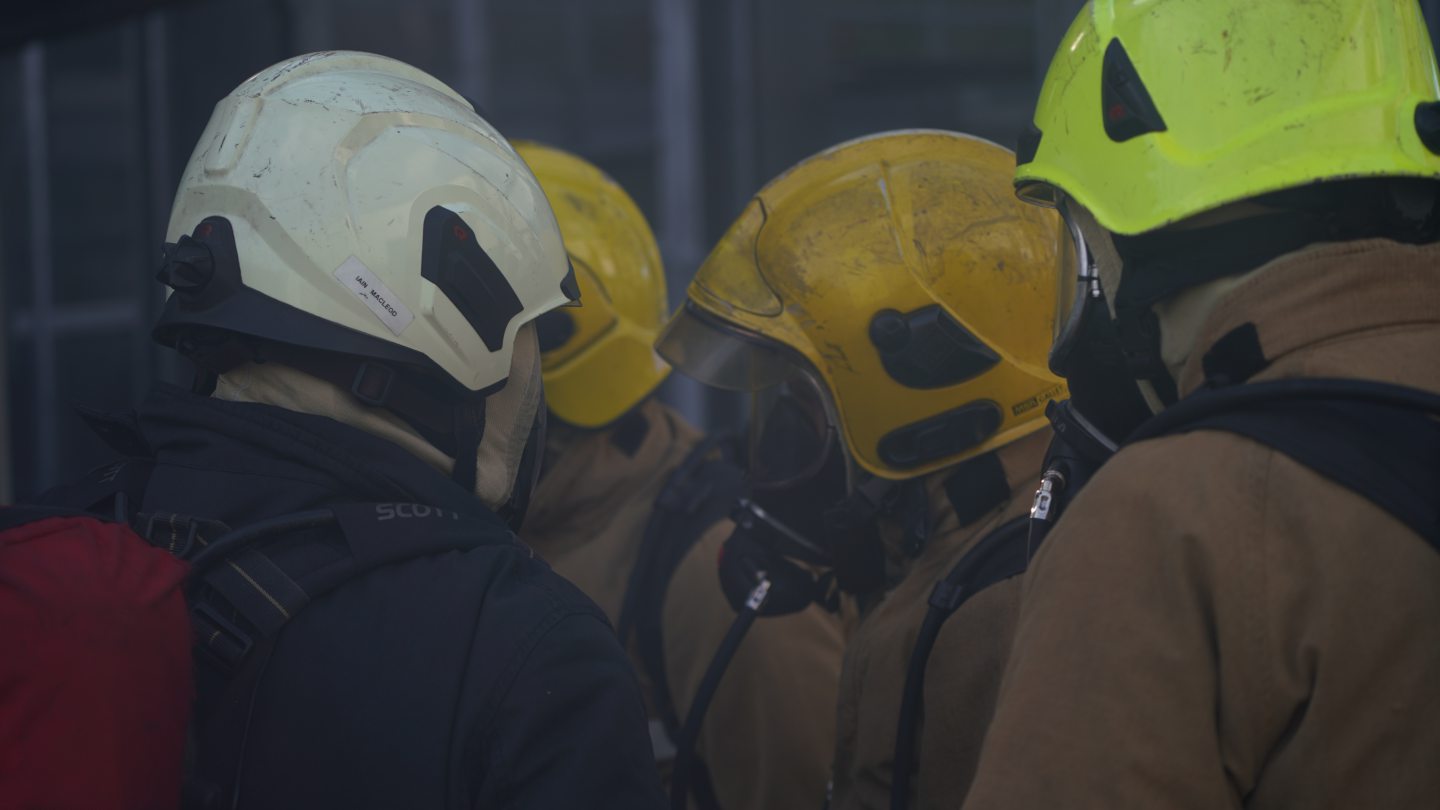 © Supplied by RigDeluge
© Supplied by RigDeluge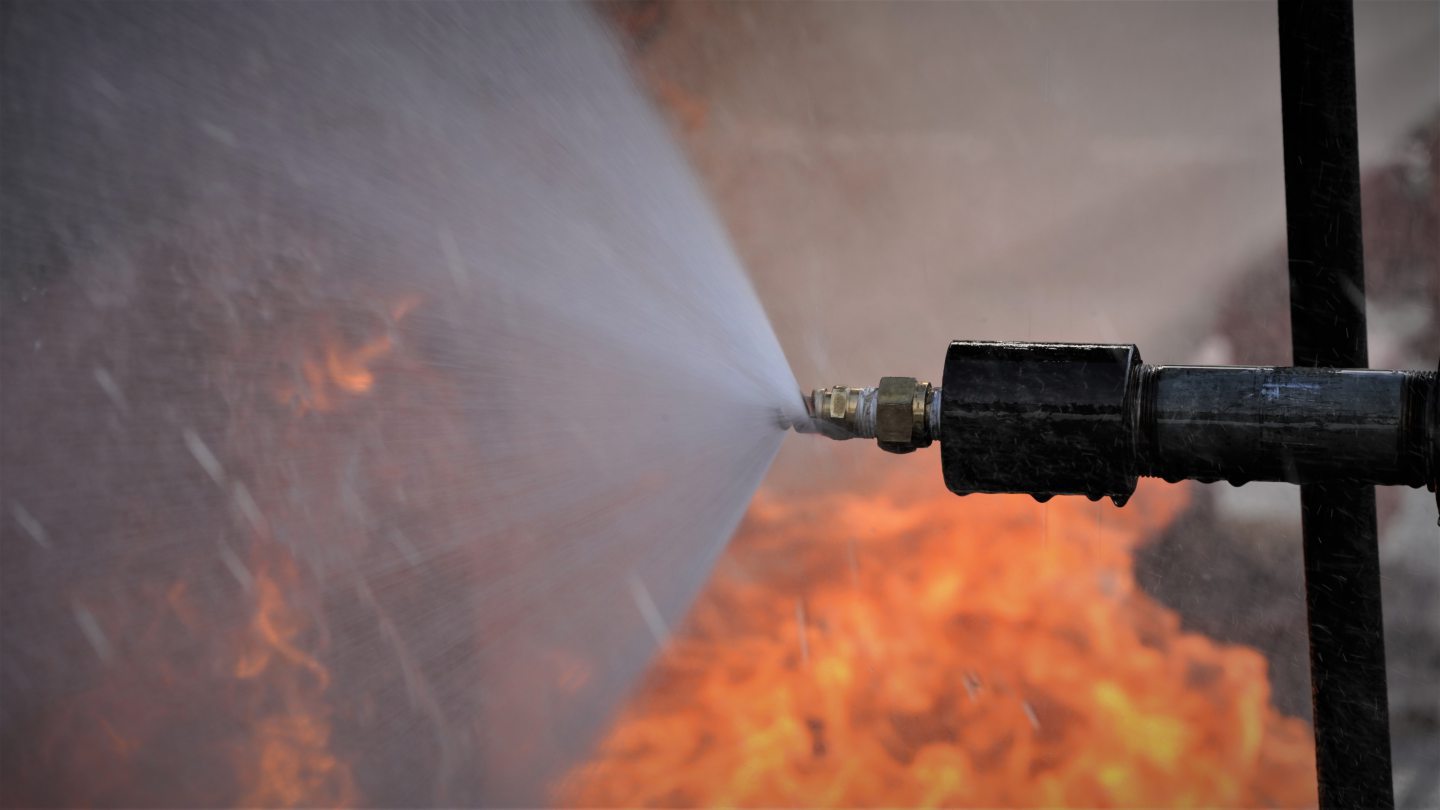 © Supplied by RigDeluge
© Supplied by RigDeluge